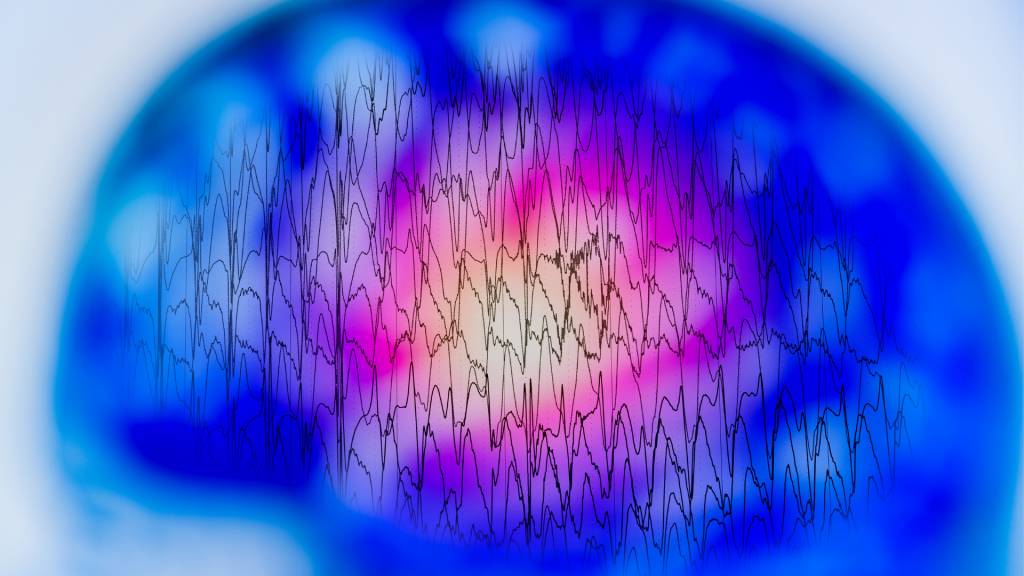
In this two-part series, we are going to look at how and why your body enters ‘stress mode’ and how you can train yourself to prevent feeling overwhelmed by anxiety.
We have talked about stress before in previous articles, but today we will be discussing the role of the Vagus nerve in controlling stress in particular. The human nervous system is fairly complicated. It is divided into several subsystems, each of which controls a different component of our physiology.
When we say that we are feeling ‘nervous’, what we’re really saying is that there is some part of our nervous system which is activating. Sometimes it becomes so active, that it interferes with our normal daily lives. Not good!
Our two main nervous system categories are the somatic system and the autonomic system. While the somatic system is in charge of voluntary body movements (like muscle control), the autonomic system helps us control all the other things we don’t usually think about.
This includes things like heart rate, dilation of blood vessels, the release of perspiration, and digestive functions.
It is the autonomic nervous system that is responsible for developing our nervous jitters, so let’s talk a little more about what that is and how training the Vagus nerve can help you calm your nerves.
What makes up the autonomic nervous system?
The autonomic system is divided into two components.
The sympathetic nervous system controls what you normally hear referred to as the “fight or flight” response. You can think of this as pre-installed survival software that activates when your brain thinks that you are in danger.
The parasympathetic nervous system helps to calm the activity of the sympathetic nervous system and controls the “rest and digest” functions of your body.
These two systems are in opposition to each other – balancing each other out in a yin and yang harmonious equilibrium.
So, what about the Vagus nerve? How does it help calm me down?
The Vagus nerve is the tenth cranial nerve and is one of the longest nerves in your entire body. It extends from your brain stem all the way down to your abdomen. It helps to regulate your digestive functions, and it even brings sensory information from your organs back to your brain for processing.
When the Vagus nerve activates it signals the release of acetylcholine (ACh), a neurotransmitter that binds to nicotinic and muscarinic receptors telling your body that it’s time to ‘rest and digest’.
Jittery nerves come with additional side effects
It is possible to become so accustomed to stress that you ignore those jittery signals your body is giving you. That doesn’t mean that you are immune to the effects of stress, just that you are no longer sensitive to recognizing the signs.
Chronic dry mouth, stomach pain, and fatigue are important signs that you are in a state of “fight or flight”. These are good indicators that you need to stimulate your Vagus nerve to offset these unpleasant and harmful side effects of being in distress.
Luckily, we have been learning how to do this for quite a while. Here are some simple things you can do to help stimulate your Vagus nerve and stop stress from becoming too overwhelming.
Meditative breathing
Purposeful breathing helps your mind focus on your body’s current state of being. While concentrating on your breathing, scan your body for signs of tension, discomfort, or pain. Breathe deeply from your diaphragm. Scan your body for these signs as you work your way from head to toe.
You may notice a slight increase in saliva beginning to form in your mouth after starting this exercise. This is because your Vagus nerve is activating your “rest and digest” response.
Pay attention to the biorhythms of your body
Your body will let your know what it needs and when it needs it. Often times we ignore these signals because we are busy, in a rush, or distracted by daily obligations and routines.
It is not uncommon to feel angry or nervous when your body has not been provided with enough nutrition. Sometimes a little snack every now and again could make all the difference.
Laughter really is the best medicine
Taking the time to find something that will make you laugh or smile while engaging in stressful work will help stimulate your rest and digest response. This will help keep you calm and relaxed. Have you ever experienced nervous laughter before? Sometimes when we are confronted with an anxiety-provoking situation that flips our fight or flight mode to the on position, we start to laugh. That’s not accidental.
Your body is experiencing a sudden rush of anxiety, and your mind is subconsciously attempting to lessen the impact.
Sometimes watching a few cute animal videos on YouTube is time well spent to help you to smile, laugh, and get back on track.
It is important to note that these techniques are not meant to mask or avoid the problems that are causing your anxiety. Feeling calmer and in control will help you to work with a trusted mental health professional so that you can find the root cause.
Read next week’s blog where we discuss additional techniques to help you get a grip on your nervous impulses.
Citations:
“Parasympathetic Response: Train Your Nervous System to Turn off Stress: Anxiety Skills #11.” YouTube, uploaded by Therapy in a Nutshell, 14 June 2017, www.youtube.com/watch?v=8FpKpW0EhYo&list=PLbPJLaLL5_ENqax0xTBoEGV5mxNmkseHQ&index=46
Sigrid, Breit, et al. “Vagus Nerve as Modulator of the Brain–Gut Axis in Psychiatric and Inflammatory Disorders.” Frontiers in Psychiatry, vol. 9, 2018, p. 44, doi:10.3389/fpsyt.2018.00044.
Tindle J, Tadi P. Neuroanatomy, Parasympathetic Nervous System. [Updated 2020 Nov 15]. In: StatPearls [Internet]. Treasure Island (FL): StatPearls Publishing; 2021 Jan-. Available from: https://www.ncbi.nlm.nih.gov/books/NBK553141/


No responses yet